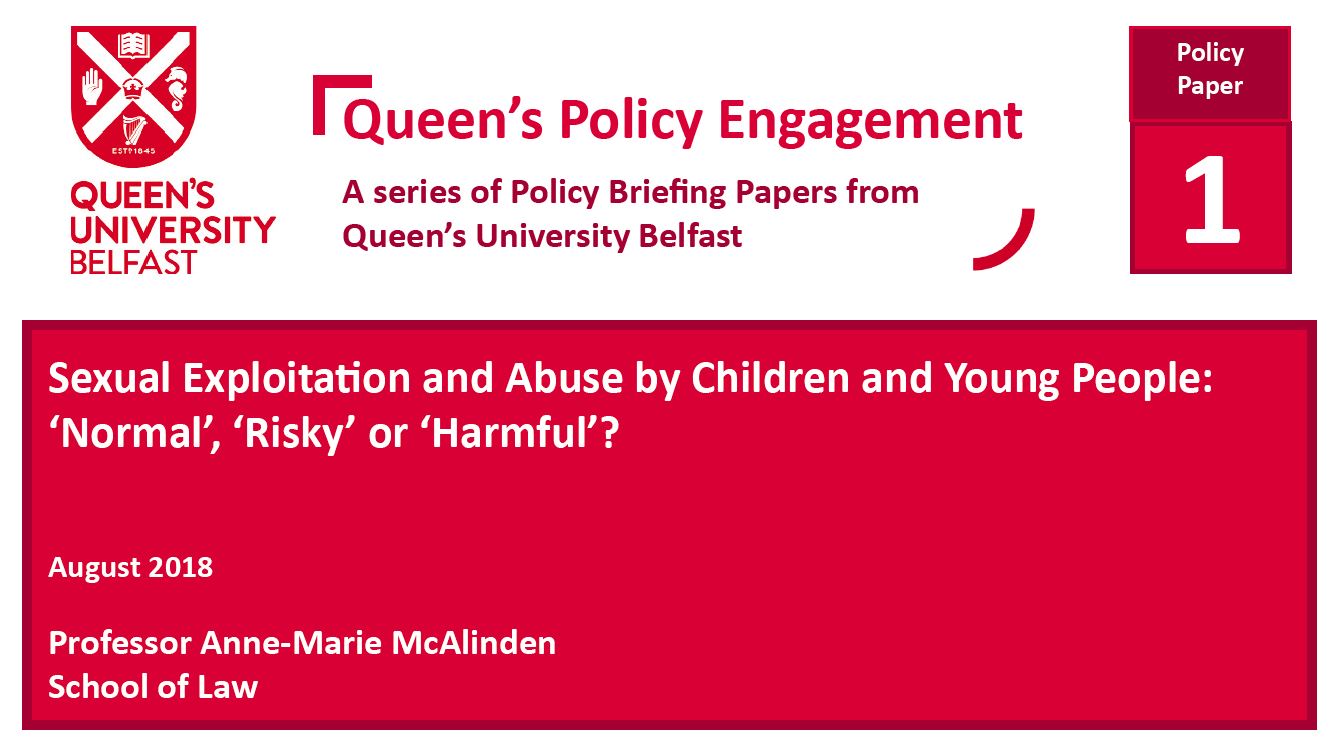Sexual Exploitation and Abuse by Children and Young People: ‘Normal’, ‘Risky’ or ‘Harmful’?
In the first of a series of Queen's Policy Engagement Briefing Papers, Professor Anne-Marie McAlinden considers the nature and extent of peer-to-peer sexual exploitation and abuse.

Peer-based sexual behaviours, especially those involving ‘new media’ – interactive digital communication via the internet or mobile phones – are among the fastest growing areas of concern for front-line professionals in the area of ‘sexual offences’, including the police.
It is a topic, however, which is often subject to much misconception as well as public ‘panic.’
The following paper considers the nature and extent of peer-to-peer sexual exploitation and abuse which challenge traditional conceptions of how society regards children and victims more broadly. It also examines why concerns about harmful sexual behaviour (HSB) by children have recently emerged.
To read or download this Briefing Paper, please click here.




